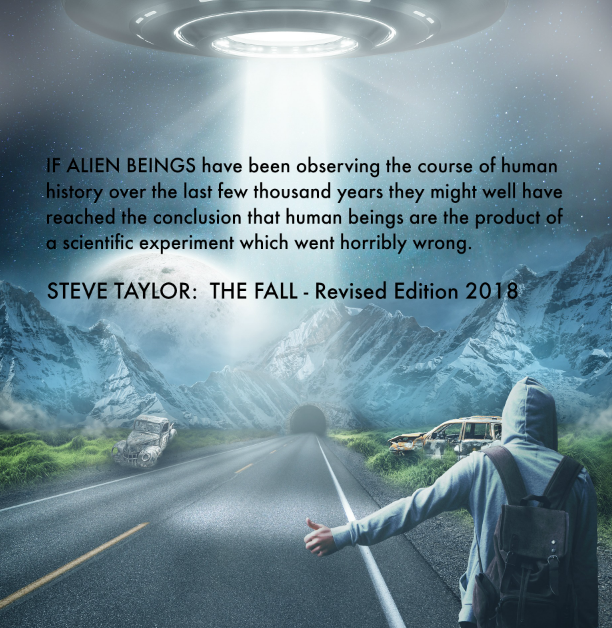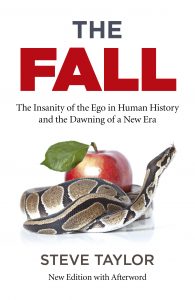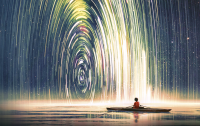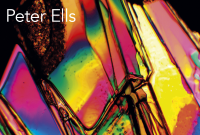
by Steve Taylor
FOR THE LAST 6000 years, human beings have been suffering from a kind of collective psychosis. For almost all of recorded history human beings have been – at least to some degree – insane.
 This seems
incredible because we have come to accept the consequences of our insanity as normal. If madness is everywhere, nobody knows what sane, healthy and rational behaviour is any more. The most absurd and
obscene practices become traditions, and are seen as natural. It becomes “natural” for human beings to kill each other, for men to oppress women, for parents to oppress children, for small groups of
people to wield massive amounts of power and dominate massive numbers of other people. It becomes normal for people to abuse the natural world to the point of ecological disaster, and to despise
their own bodies and feel guilty for experiencing completely natural desires. It becomes “natural” for human beings to try to accumulate massive amounts of wealth that they will never need, and to
endlessly chase after success, power and fame – and also somehow “natural” that, even if they do manage to gain wealth and status, they never find contentment and fulfilment anyway, but remain
constantly dissatisfied.
This seems
incredible because we have come to accept the consequences of our insanity as normal. If madness is everywhere, nobody knows what sane, healthy and rational behaviour is any more. The most absurd and
obscene practices become traditions, and are seen as natural. It becomes “natural” for human beings to kill each other, for men to oppress women, for parents to oppress children, for small groups of
people to wield massive amounts of power and dominate massive numbers of other people. It becomes normal for people to abuse the natural world to the point of ecological disaster, and to despise
their own bodies and feel guilty for experiencing completely natural desires. It becomes “natural” for human beings to try to accumulate massive amounts of wealth that they will never need, and to
endlessly chase after success, power and fame – and also somehow “natural” that, even if they do manage to gain wealth and status, they never find contentment and fulfilment anyway, but remain
constantly dissatisfied.
The aim of my book, The Fall, is to discover where this madness comes from, and to find out if it really is natural to human beings. We’ll look at a great deal of evidence suggesting that earlier human beings were, in these terms, much more ‘sane’ than us. And even until recent times there were many parts of the world where the kind of pathological behaviour I’ve just described didn’t exist.
All of this insanity was the result of an event which I also call The Fall – a collective psychological shift which large groups of people underwent around 6000 years ago, as a result of an environmental disaster which began in the Middle East and central Asia. A new kind of human being came into existence then, with a more defined sense of individuality, and a new way of experiencing life and perceiving the world. In some ways the new human type was an advance – it brought technological advances, for example, and the civilisations of Sumer and Egypt (and many others afterwards). But it also gave rise to social pathologies such as warfare, male domination and social inequality.
We will see that before the Fall human life seems to have been fairly carefree and pleasant, even joyful. But after it life became “nasty, brutish and short,” so full of misery that countless generations could only endure it by convincing themselves that it was just a brief stopover – to grin and bear as best they could – before they ascended to an eternal paradise. But perhaps now, as I discuss in the final section of this book, we are turning a full circle, and returning to a kind of sanity. Over the last few centuries – particularly since the eighteenth century – there have been signs of a re-emergence of all of the old “pre-Fall” characteristics. There has been a re-emergence of democracy and equality, of respect for nature and the human body, of an awareness of the essential spiritual reality of the cosmos, and so on. These characteristics perhaps haven’t yet become as dominant as “fallen” ones, but they’re certainly gaining in strength as time goes by.
This book talks a lot about what we’ve lost, but also – hopefully – about what we can do to get it back. If there’s just one thing that you, the reader, take away from my book, I hope it’s the idea that it doesn’t have to be like this. The last 6000 years have been a schizophrenic nightmare from which we are finally beginning to awake. If this book can, in however small a way, contribute to this process of awakening I will be more than happy.
One of Eckhart Tolle's favourite books, the original edition of The Fall has been a 'recommended read' on his website for 10 years and has sold almost 15,000 copies. This updated edition includes a new Afterword and discusses up-to-date developments in research.
Endorsments:
The Fall is one of the most notable works of the first years of our century, and I am convinced it will be one of the most important books of the whole century. Elias Capriles, International Journal of Transpersonal Studies
A wonderful book, which must be a candidate for one of the half-dozen most important books I've ever read. Keith Sagar, Special Professor of English, Nottingham University
The Fall is an astonishing work, full of amazing erudition, all brilliantly organised and argued. The argument that humans beings have not always been - and do not have to be - such a psychological mess is presented with a beautiful inevitability and logic. The book is a remarkable feat. Colin Wilson
It is my fervent wish that this important book will have a wide audience...In a world where the very existence of humanity is threatened, Steve Taylor offers a visionary yet practical path out of the morass that distorts human nature. Stanley Krippner, Professor of Pscychology, Saybrook Graduate School, California
A fascinating, enlightening and inspiring investigation into the roots of human consciousness and a much needed proscription for a truly human future. Gary Lachmann, author of A Secret History of Consciousness
Ever since Adam and Eve were rudely introduced to nakedness and shame people have been asking "what went wrong?" You are sure to find this well-argued, thoughtful, provocative and a pleasure to read. Christopher Ryan, Institute of Advanced Medicine and Advanced Behavioral Technology, Juarez, Mexico
It's hard to shake off the feeling that Taylor is on to something, you find yourself provoked into thought or agreement. Nicholas Lezard, Guardian (paperback choice of the week)
Has the sweep of H G Wells' Outline of History... Read it straight through like a novel. Independent on Sunday (Books of the year).
Steve Taylor has produced a major work. It is a powerful message and a beacon of hope in a world in which fear still rules supreme. Scientific and Medical Network Review
A remarkable book. Nexus
Editors Choice; Simple and powerful. Extremely well-researched and deeply insightful. Excellent reading and a must for all concerned and awakened people. Odyssey.
A very thought-provoking and intelligent case, in what can be best described as an educational, page-turning read. It covers vast time frames, a diverse array of belief systems, the incredible capabilities of humans in order to show the necessity of everything that has come to pass so that we can make the most of our future. Kindred Spirit
STEVE TAYLOR PhD is a senior lecturer in psychology at Leeds Metropolitan University. He is the author of several best-selling books including The Leap, The Calm Center, Waking From Sleep and Back to Sanity, and a book of spiritual poems, The Meaning. Steve also edited the book, Not I, Not Other than I, The Life and Teachings of Russel Williams, an influential spiritual teacher, who left us earlier this year. Steve was named number 72 on the 2018 Spiritual 100 List in Watkins Mind Body Spirit magazine.
The Fall (new edition with Afterword)
A new edition of Steve Taylor's bestselling classic, in which the author provides an Afterword, including research developments that have occurred since the book was first published in 2005.
"An important and fascinating book about the origin, history and impending demise of the ego - humanity's collective dysfunction. The Fall is highly readable and enlightening, as the author's acute mind is at all times imbued with the higher faculty of spiritual awareness." Eckhart Tolle
Paperback £14.99 || $22.95 BUY NOW USA | UK
e-book £10.99 || $17.99 BUY NOW USA | UK
Categories:
0 comments on this article








